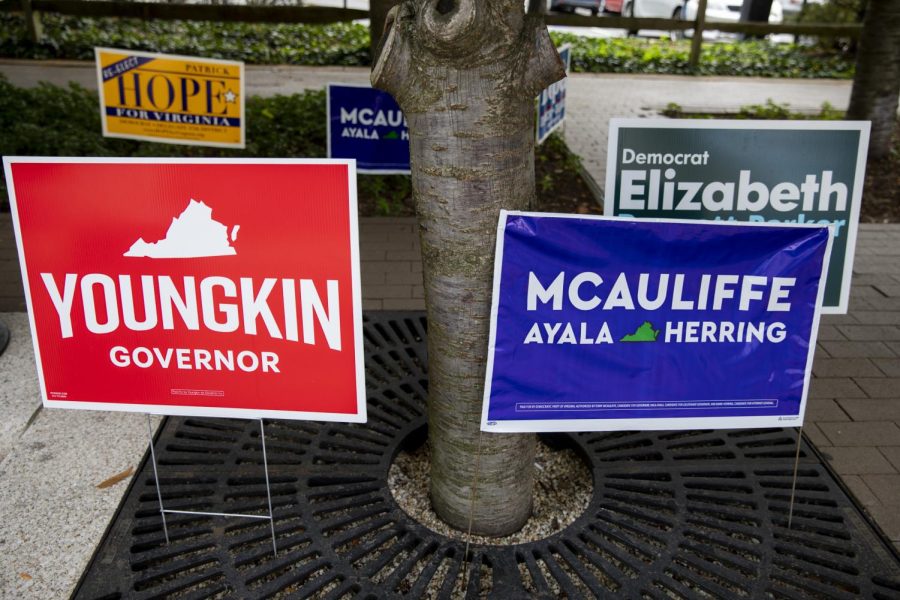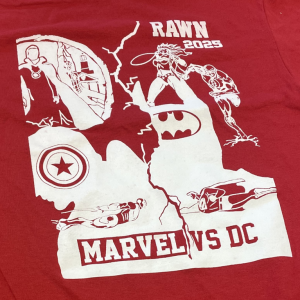Virginia gubernatorial election signals problems for Democrats ahead
A breakdown of the VA election and its importance to the national political landscape
November 18, 2021
Republican challenger Glenn Youngkin defeated former Democratic Governor Terry McAuliffe in Virginia’s race for governor on the morning of November 3. McAuliffe conceded the election just hours after the polls closed in Virginia. Youngkin won by a margin of 2.5%, which equates to just over 82,000 votes.
“I hope Virginians will join me in wishing the best to him and his family,” McAuliffe said in a statement after his concession, according to a report from The Hill. Despite his loss, he went on to reiterate his campaign’s progressive initiatives, stating, “We must protect affordable health care coverage, raise the minimum wage faster and expand paid leave so working families have a fighting shot.We must protect voting rights, protect a woman’s right to choose and, above all else, we must protect our democracy.”
“This is the spirit of Virginia coming together like never before,” Youngkin told his supporters in a speech following his projected victory by multiple news outlets. “For too long, we’ve been expected to shelve our dreams, to shelve our hope, to settle for low expectations. We will not be a commonwealth of low expectations. We’ll be a commonwealth of high expectations.”
Youngkin’s campaign efforts focused on similar issues as his rival’s, however the two candidates’ ideas generally contrasted one another. McAuliffe has supported statewide mask mandates as well as boosts of the COVID-19 vaccine. On the other hand, Youngkin has opposed statewide mask and vaccine mandates, though he has encouraged Virginians to voluntarily take the shots.
Furthermore, both men focused on education as a topic of their campaigns. They both vowed to invest largely into education, whether it would be funding the construction of schools or making schools adopt improved safety formulas. Youngkin has also promised to stand up for teachers and parents of Virginia.
“Critical race theory has moved into our school system and we have to remove it,” Youngkin said to Fox News in August. Youngkin’s campaign pledged to remove the academic concept from curricula, and McAuliffe combatted the promise by calling it “racist” and “a dog whistle.”
Likewise, the candidates directed their focus to the creation of jobs and the economy, and McAuliffe in particular promised paid sick and medical leave days to workers as well as an increased minimum wage. Youngkin has zeroed in on cost of living problems and promises to cut tax bills in the state.
McAuliffe’s defeat has not only been attributed to his campaign for governor in the state. Many news outlets noted that President Joe Biden’s approval ratings hit low marks in Virginia during McAuliffe’s campaign, to which McAuliffe said in a virtual rally, “As you know, the president is unpopular today, unfortunately, here in Virginia, so we’ve got to plow through.”
To add to the importance of the election, Youngkin is the first Republican to win statewide office in Virginia since 2009. However, the results of this particular gubernatorial election do follow the recent trend of Virginians in odd-year elections voting against the party in the White House. The win for the Republicans could foretell what is to come in the 2022 midterm elections. Thirty-six states will hold gubernatorial elections then, and the balance of power in Congress will be at stake.
“Virginia has become a leading political indicator for the midterm elections because there are few statewide elections the year after a presidential contest,” stated Stephen Farnsworth, a professor of political science at the University of Mary Washington in Virginia.
As midterms creep up on states across the country, the odd-year election in Virginia should be taken into consideration, especially since Virginia was a state that voted solidly for Democratic President Joe Biden in the 2020 presidential election. The win for GOP candidate Youngkin could be used as motivation for the party, and his campaign style as a template for GOP candidates running in their statewide elections in 2022.







